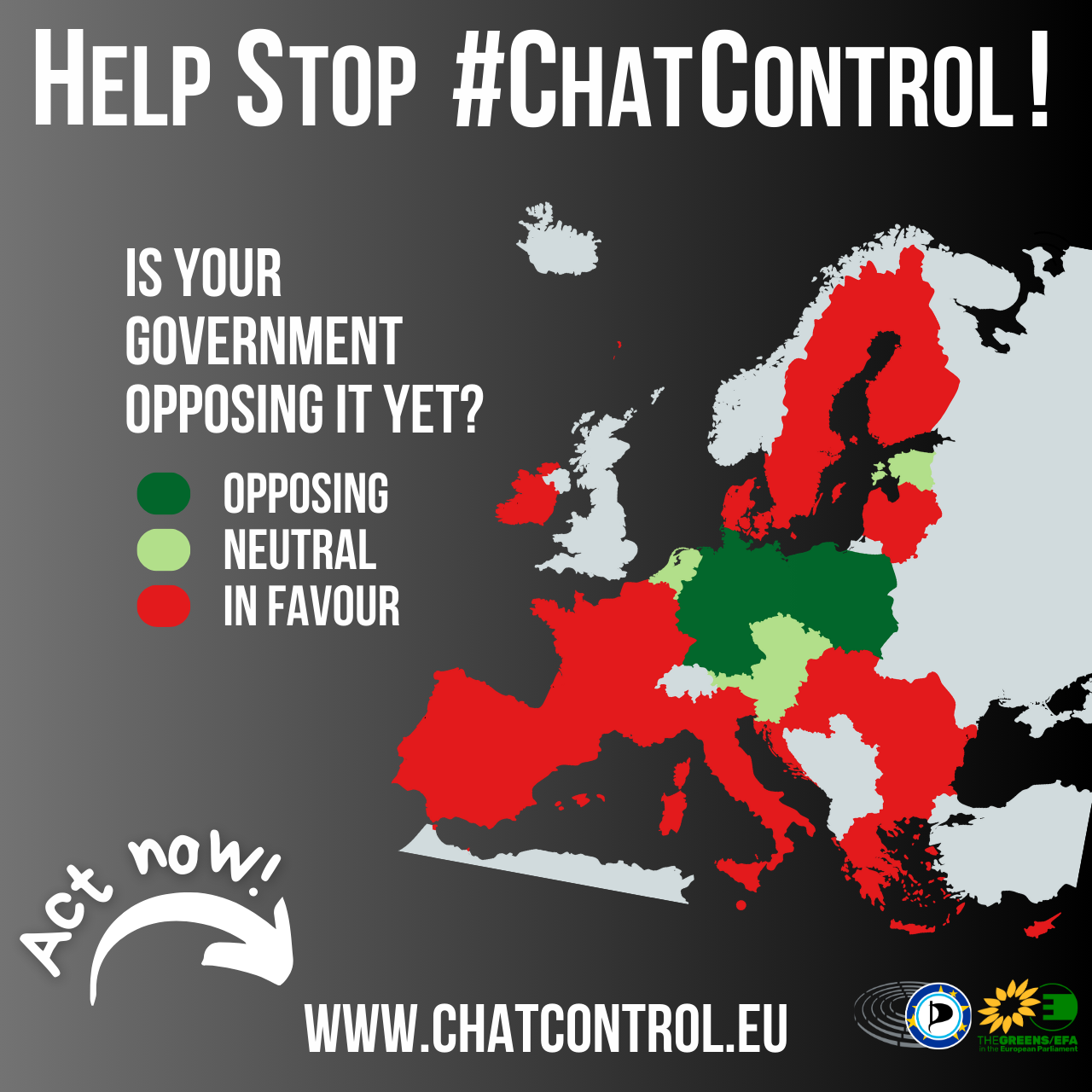UN Human Rights Commissioner warns against chat control
UN Human Rights Commissioner Türk advises against EU plans to search all private messages and photos without suspicion using error-prone algorithms (so-called “chat control” or “CSAM scanner” proposal), questioning its compatibility with human rights.[1] In a newly released statement, the Office of the High Commissioner for Human Rights (OHCHR) warns:
“Moreover, in the general scanning of communications, frequent false positives cannot be avoided, even if accuracy rates are high, thereby implicating numerous innocent individuals. Given the possibility of such impacts, indiscriminate surveillance is likely to have a significant chilling effect on free expression and association, with people limiting the ways they communicate and interact with others and engaging in self-censorship.”
Specifically, the Human Rights Commissioner criticises the enisioned message screening on private smartphones (so-called “client-side scanning”) for undermining secure message encryption: “Client-side scanning also opens up new security challenges, making security breaches more likely. The screening process can also be manipulated, making it possible to artificially create false positive or false negative profiles. Even if, for current purposes, client-side screening is narrowly tailored, opening up devices for Government-mandated screening is likely to lead to future attempts to widen the scope of content that is the target of such measures. In particular, where the rule of law is weak and human rights are under threat, the impact of client-side screening could be much broader, for example it could be used to suppress political debate or to target opposition figures, journalists and human rights defenders. “
Overall, the human rights experts conclude, “Without in-depth investigation and analysis, it seems unlikely that such restrictions could be considered proportionate under international human rights law, even
when imposed in pursuit of legitimate aims, given the severity of their possible consequences.” The rulings of the European Court of Justice “support this conclusion”. According to them, automatic analysis is conceivable only in the event of a threat to national security. “The court rejects any other justification.” The case law reveals “an even stronger scepticism towards the screening of content data”. The human rights Commissioner recommends that message searches only be targeted at suspicious individuals.
Pirate Party Member of the European Parliament Patrick Breyer comments:
“The human rights experts speak out what is being hushed up in Brussels: Indiscriminate mass surveillance of our private communications is not only ineffective, but also clearly illegal. But the wolves in child protection fur in Brussels are in such a clear majority that it will take massive protests to save digital privacy of correspondence and digital security on the net. Everyone is needed now!”
The EU Parliament gave the green light for the negotiations to start last week. Rapporteur and chief negotiator will be conservative MEP Javier Zarzalejos, who had already negotiated the controversial Europol reform and is a strong supporter of the proposal. Hilde Vautmans, also a strong supporter, is negotiating for the liberal group, so that a centre-right majority in Parliament supports the plans. For the Greens/European Free Alliance group, Patrick Breyer (Pirate Party) is a clear opponent at the negotiating table.
In the meantime, the Czech Council Presidency has proposed to extend the regulation on chat control to include the removal of search engine search results.
Breyer’s information page on chat control: chatcontrol.eu

